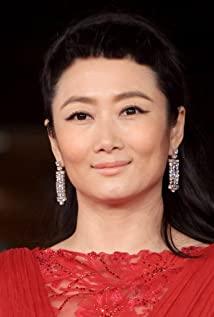On December 7, 2007, I met Jia Zhangke in the auditorium of Jiaotong University. I only knew Jia Zhangke because of "The Good Man in Three Gorges", which is enough to show how "tender" I am.
He is in his thirties, but looks like a quiet but talented little boy from his clothes, demeanor, and posture.
Because I don't know it very well, I can't talk about worship. But after watching "The Good Man in Three Gorges", I felt that I would adore him in the future, so in order to satisfy my admiration in the future, I was the first to rush to the stage to take a photo with him and ask for an autograph. It's also the first celebrity autograph I've asked for.
Growing up in a honeypot in the city, my heart lacked the sympathy for that kind of human suffering, the lack of identification with the "ignored phenomenon" (in Jia Zhangke's language).
This film expresses many real problems in China intentionally or unintentionally: the wandering and helpless behind the Three Gorges Project "benefiting mankind"; the protection of cultural relics caused by the Three Gorges Project; the huge gap between the rich and the poor; social unrest; It's not what the film is trying to show, it shows another higher level - "man is walking on a tightrope" (the last scene of the film), that is, people are struggling with hope and pain.
Ameng said, look at his films, and then look at the films of most other directors in China, and you will feel that he is one of the few directors with artistic conscience now. Yes, when I think of "The Promise" and "The Banquet" I've seen, and imagine "The Golden Armor in the City" that I haven't seen, I seem to see Chen Kaige, Feng Xiaogang, Zhang Yimou and others in ancient costumes hiding behind the screen and burning a lot of money. He held the RMB with a smug smile on his face. They are selling Chinese art, not only to Hollywood on the other side who likes mysterious oriental art but doesn't really understand it, but also to the Chinese people who admire them and regard them as leading figures in Chinese cinema.
Pay attention to Jia Zhangke, pay attention to his films, pay attention to Chinese films.
View more about Still Life reviews









